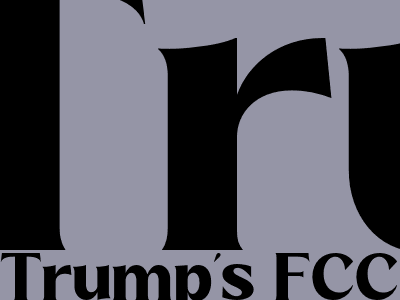
Trump's FCC Picks and Anti-Censorship Stance Could Reshape Big Tech Landscape
FCC Nominees Could Propel Major Deregulation
President Trump's recently appointed nominees to the Federal Communications Commission (FCC) are poised to bring about sweeping changes to the way the federal government regulates the technology industry. The nominees, Nathan Simington and Brendan Carr, are both staunch advocates for deregulation and have pledged to roll back Obama-era rules that they say stifle innovation and competition.If confirmed, Simington and Carr would join FCC Chairman Ajit Pai, a Republican who has already taken steps to dismantle net neutrality rules and other regulations seen as burdensome by the tech industry. With a Republican majority on the FCC, the agency is expected to take a much more hands-off approach to regulating Big Tech companies like Google, Facebook, and Amazon.
The FCC's shift towards deregulation is likely to have a significant impact on the tech industry. Companies will have more freedom to operate without government interference, which could lead to increased innovation and competition. However, critics argue that deregulation could also lead to a less competitive market, with large companies consolidating their power and stifling smaller competitors.
Anti-Censorship Stance Raises Concerns
In addition to their support for deregulation, Trump's FCC nominees have also expressed strong opposition to censorship. Simington has said that he believes the FCC should not have the authority to regulate content on the internet, while Carr has called for the repeal of Section 230 of the Communications Decency Act, which protects online platforms from liability for user-generated content.The FCC's anti-censorship stance has raised concerns among some who believe that it could lead to an increase in hate speech and other harmful content online. However, supporters of the FCC's position argue that it is necessary to protect free speech in the digital age.
Potential Impact on Big Tech
The FCC's deregulation and anti-censorship stance could have a significant impact on Big Tech companies. On the one hand, deregulation could give these companies more freedom to innovate and compete. On the other hand, the FCC's opposition to censorship could make it more difficult for these companies to moderate content on their platforms, which could lead to increased liability.It is still too early to say what the long-term impact of the FCC's new leadership will be. However, it is clear that the agency is poised to play a major role in shaping the future of the tech industry.